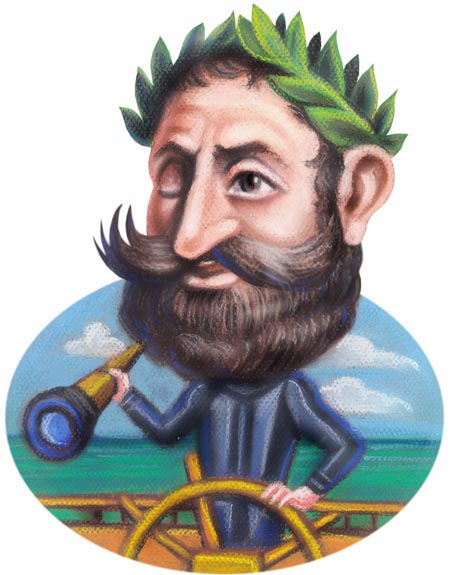Luís Vaz de Camões is so prominent and famous in Portugal and Portuguese literary history that his day of demise is commemorated as Portugal National Day since his date of birth is not confirmed. His most famous epic Os Lusíadas depicts the journey of Vasco da Gama to India and the victory and triumph of Portuguese warriors over the enemies of Christianity in the 15th century. Vasco da Gama reached India in 1498 at Calicut in present day Kerala.
In 1944, at the dedication ceremony of the National Stadium in Oeiras, near Lisbon, Prime Minister of Portugal, António de Oliveira Salazar, referred to 10 June as Dia da Raça meaning Day of the Portuguese Race.
The life of Luís Vaz de Camões was a turbulent one. He led a bohemian life mostly. It is presumed that he studied in the University of Coimbra without authentication. He lost his one eye in the battle of Ceuta in present day Morocco fighting the moors in the period of 1549-51. He left for Goa, India in 1553, worked in the navy and administration, fought for his country and travelled back to his country after 17 years and was stuck in Mozambique for about 3 years penniless. He worked in Macao, the then Protuguese colony, serving as trustee of personal effects for the dead and the absent.
He was jailed and punished at least twice for rowdy behavior with a government official and corruption allegation in Macau. He fell in love a couple of times – first at the Portuguese court with the Queen’s Lady in Waiting, Caterina de Ataídein the court of King John III but was banished from the court in 1547 owing to the opposition of the court high ups and in the second time he was in love with a Chinese lady who died in a shipwreck near the Mekong River along the Cambodian coast. There is a legend that Luis saved his script of Os Lusíadas keeping it raised by one hand during the shipwreck in the Mekong.
He lived his last days with a meager pension granted by the King Sebastian. He became gradually famous after his death in 1580 in Lisbon.
One of his famous sonnets is given below along with English translation. Most of his sonnets describe unhappy love, and some are critical of court life written in Petrarchan style.
Amor é fogo que arde sem se ver
Amor é um fogo qu’arde sem se ver,
É ferida que dói, e não se sente,
É um contentamento descontente,
É dor que desatina sem doer.
É um não querer mais que bem querer,
É um andar solitário entre a gente,
É nunca contentar-se de contente,
É um cuidar que ganha em se perder.
É querer estar preso por vontade,
É servir a quem vence o vencedor
É ter com quem nos mata lealdade.
Mas como causar pode seu favor
Nos corações humanos amizade,
Se tão contrário a si é o mesmo Amor?
Love is a fire that burns unseen
A wound that aches yet isn’t felt,
An always discontent contentment,
A pain that rages without hurting,
A longing for nothing but to long,
A loneliness in the midst of people,
A never feeling pleased when pleased,
A passion that gains when lost in thought.
It’s being enslaved of your own free will;
It’s counting your defeat a victory;
It’s staying loyal to your killer.
But if it’s so self-contradictory,
How can Love, when Love chooses,
Bring human hearts into sympathy?
Rimas, Sonnet 81 (translated by Richard Zenith).
Critics deem Camões to be Portugal’s finest lyric poet extolling the emotional intensity and virtuosity of his writing. Scholars have continued to regard Os Lusíadas as the great epic poem of the Renaissance, perceiving a harmonious balance between Camões’s classical allusiveness and the sensual realism of his descriptive language in the work.
His lyrics were published posthumously in 1595. He also wrote three comedies which were also published posthumously in 1587. Camões’ Os Lusíadas is considered the first literary text in modern Portuguese and also a national epic of the same stature as of Vergil’s Aeneid.
Various military ceremonies, exhibitions, concerts, pageants and parades, and an awards ceremony by the President of the Portuguese Republic are organized to celebrate the National Day. Official celebrations are hosted by different cities every year chosen by the President of Portugal. In 2013, the official celebrations took place at Elvas.
This article was first published in the Dhaka Tribune on 4 April 2014.


